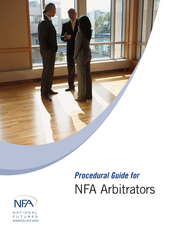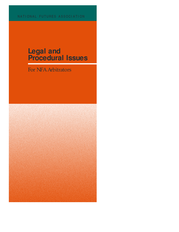Description
National Futures Association
Arbitration Department
300 South Riverside Plaza, Suite 1800
Chicago, Illinois 60606-6615
800-621-3570
www.nfa.futures.org
© 2005, 2007, 2009, 2010
National Futures Association
.









